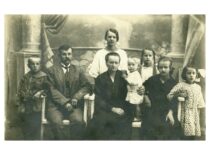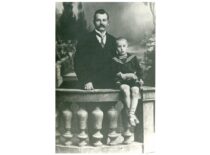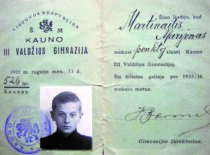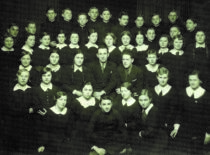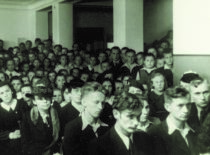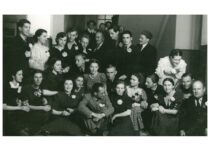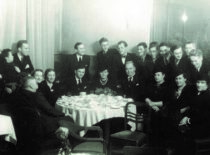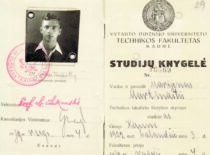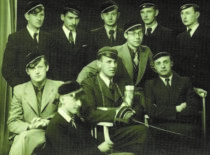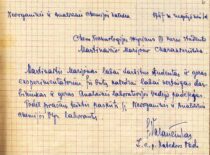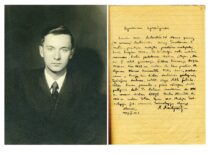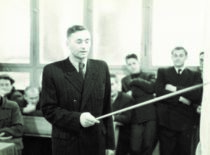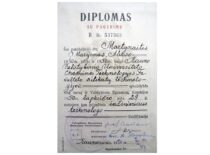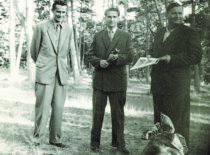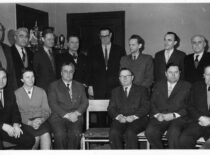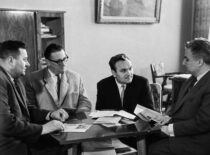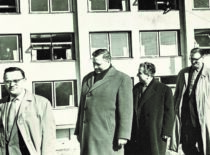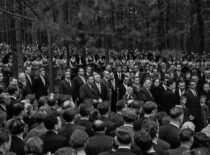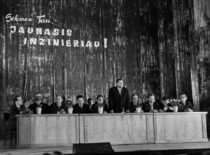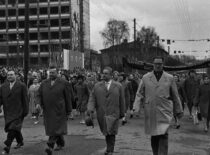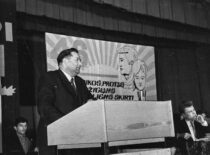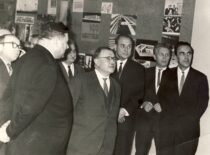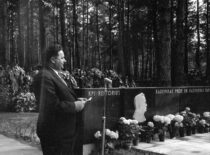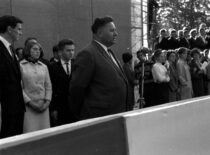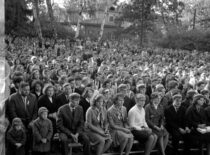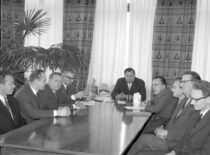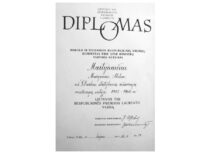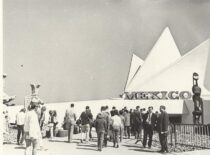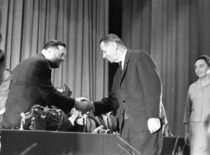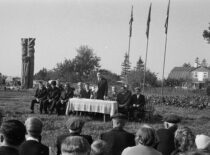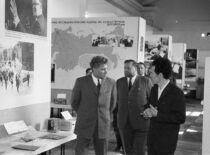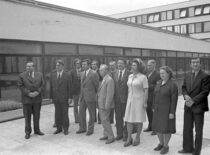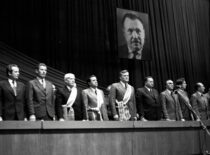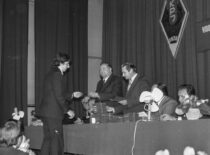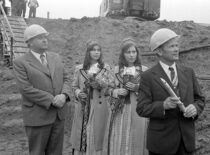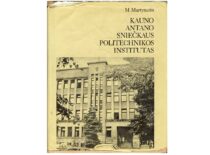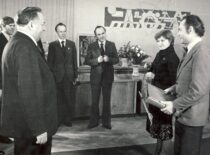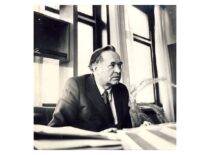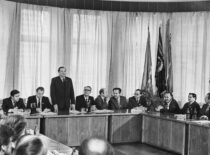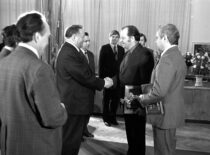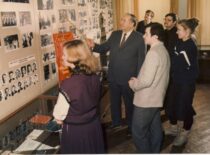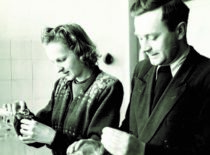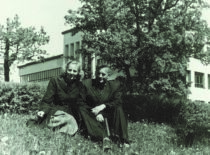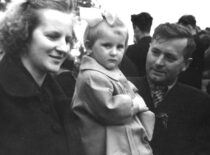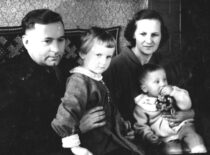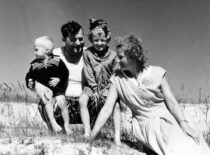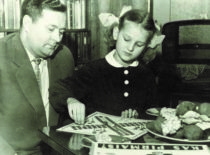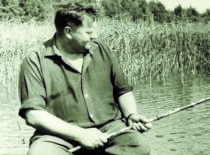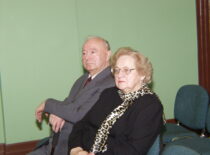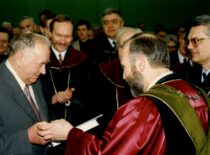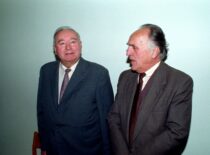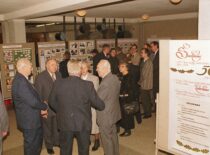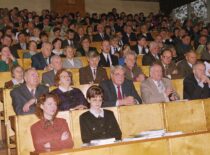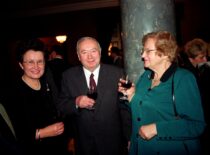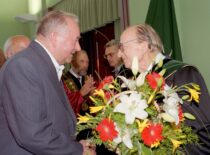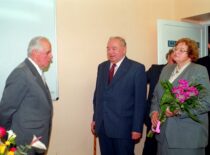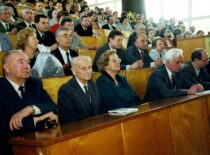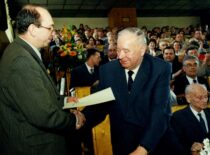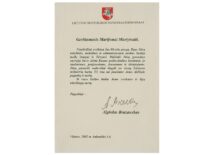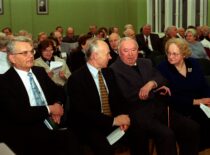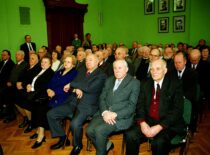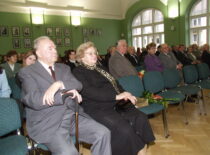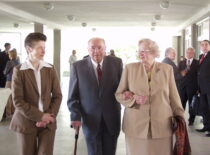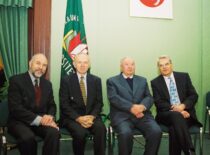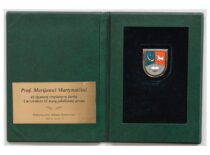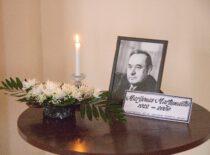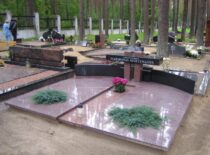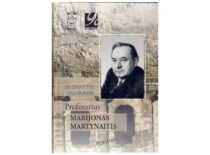From assistant to rector
In 1955-1962, M. Martynaitis worked at the Department of Silicate Technology as a senior lecturer, associate professor and head of the department. In 1958, he was awarded the title of associate professor. After becoming head of the department in 1956, M. Martynaitis was appointed deputy of KPI Director Prof. K. Baršauskas for academic affairs, and in 1958-1964, he was the vice-rector of KPI for academic affairs. As vice-rector, he held the position of the head of the Department of Silicate Technology as a secondary job and worked on a voluntary basis. In 1962, when the number of jobs at the Rector’s Office increased, M. Martynaitis resigned from the position of the head of the department. After the death of the first rector of KPI, academician Kazimieras Baršauskas, M. Martynaitis took over the position in 1964. He proposed to ask the leadership of the Lithuanian SSR to grant the name of Prof. K Baršauskas to Kaunas Polytechnic Institute. The Central Committee of the Communist Party of Lithuania (LKP) did not approve the naming of the institute after K. Baršauskas, and in 1974, after the death of A. Sniečkus, KPI was named after A. Sniečkus. Under the leadership of Prof. M. Martynaitis, KPI continued to develop dynamically by establishing new faculties: the Faculty of Automatics (1967), the Faculty of Engineering Economics (1968), the Preparatory Office (1969), the Faculty of Construction and Plumbing was established through the reorganisation of the Faculties of Plumbing and Construction (1971), and the Faculty of Computing Techniques (1977); the scope of research work expanded, and the research centre Vibrotechnika was established alongside the research centre Politechnika, which had been operating since 1962; teaching facilities were strengthened: the following buildings were constructed on the territory of KPI Student Campus: the Chambers of Construction (1965), Electronics (1967) and Chemical Technology (1970), the student cafe “Kolegos” (1973), the Experimental Workshop (1975), and a new dormitory was built every 2-3 years. A 130-bed prophylactic hospital was set up in one of them (1976). The construction began for the Faculty of Light Industry (1982), followed by the building of the Computing Chamber, etc. The rector, with his business-like management of the Rector’s Office and the deans, was able to earn the trust and respect of the entire community of the institute. He is remembered by those who worked with him as a particular, demanding and fair leader. Prof. M. Martynaitis continued the works started by Prof. K. Baršauskas. One of them was the establishment of KPI Museum in 1965. Under the leadership of the Rector Prof. M. Martynaitis, there was no restriction on the admission to KPI of persons who had been repressed by the Soviet authorities and those who had been exiled, or their children. The Institute also employed staff and teachers who had suffered at the hands of the Soviet authorities. KPI Rector Prof. M. Martynaitis was keen to provide the teaching process at KPI in the Lithuanian language and agitated the teachers to prepare textbooks and methodological tools for students in the Lithuanian language and have them printed as soon as possible. Prof. M. Martynaitis, alone or with co-authors, prepared and printed 6 textbooks and several methodological publications for students studying the technology of mineral binding materials. In addition to speciality textbooks and methodological tools, Prof. M. Martynaitis prepared, compiled or edited books on the history of higher education institutions, such as “Kazimieras Baršauskas” (1969), “Kaunas Polytechnic Institute” (1979), “KPI Faculty of Chemical Technology” (1987). Due to his health condition, Prof. M. Martynaitis resigned from the position of the rector of KPI in 1983 and after his retirement, returned to work at the Department of Silicate Technology.


